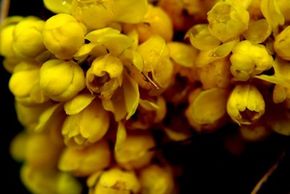Herbs can reduce pain and inflammation, provide temporary relief, and help heal raw throat tissues. Typical immune boosters such as echinacea and goldenseal or Oregon grape root are good to take when you have a sore throat that is caused by a cold or flu.
Garlic can also be helpful when battling illiness because it will fight off offending bacteria or viruses. Try adding it raw to your salad and other dishes.
Mucilaginous herbs can ease any sore throat. Marshmallow and slippery elm do a great job. Gargling with astringent herbs will alleviate discomfort. Raspberry or blackberry leaves along with elder flowers are good for this purpose. Combine them with marshmallow and licorice for a soothing effect.
Cayenne pepper, believe it or not, helps to stop pain, so add it to your gargling mixture. It is crucial to gargle all these herbs before swallowing them.
Whatever remedy you pick, herbal options can help soothe and heal a sore throat, whether it is the result of a cold, voice overuse or another affliction.
